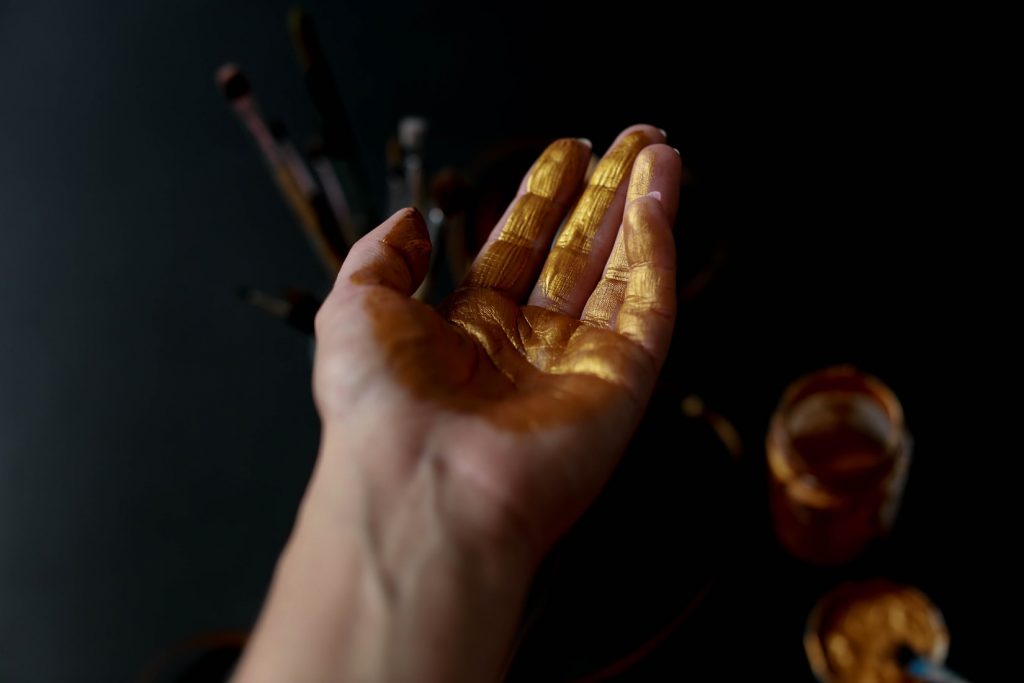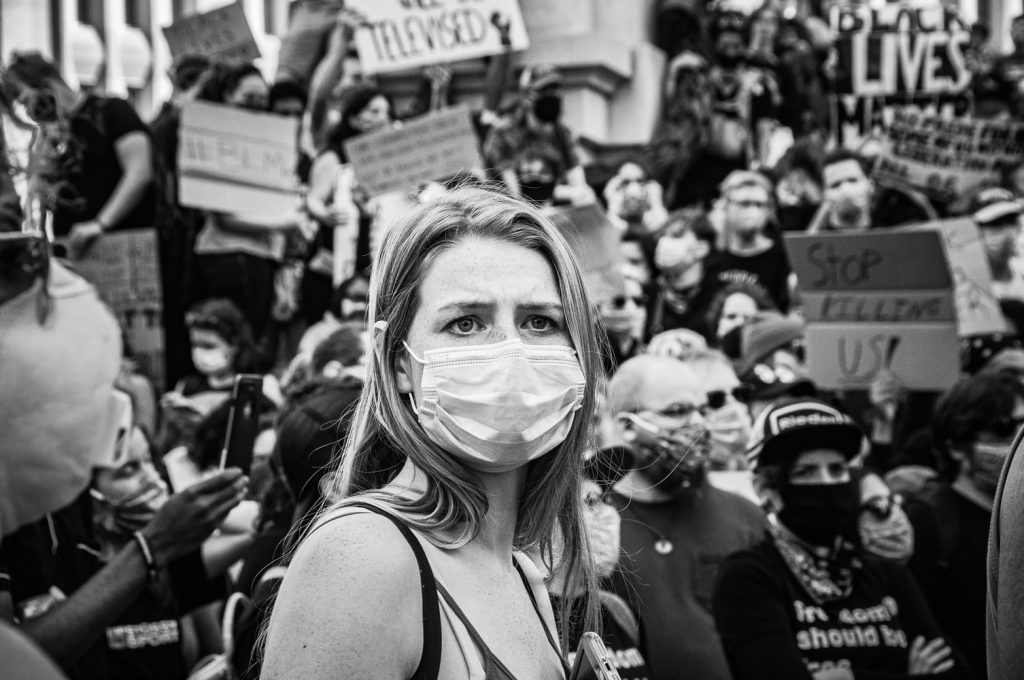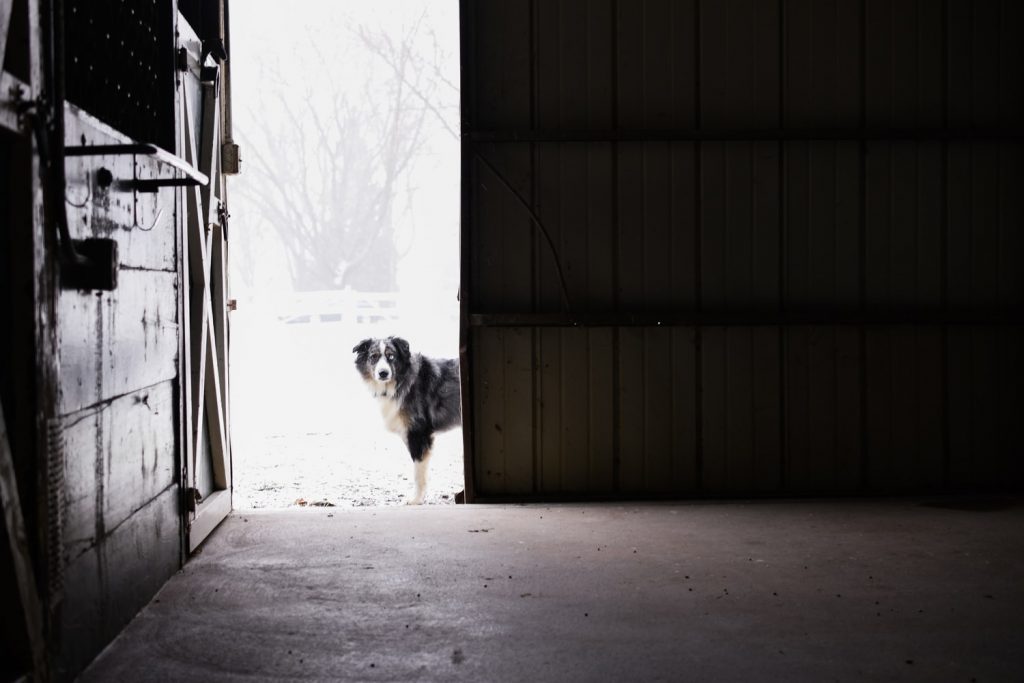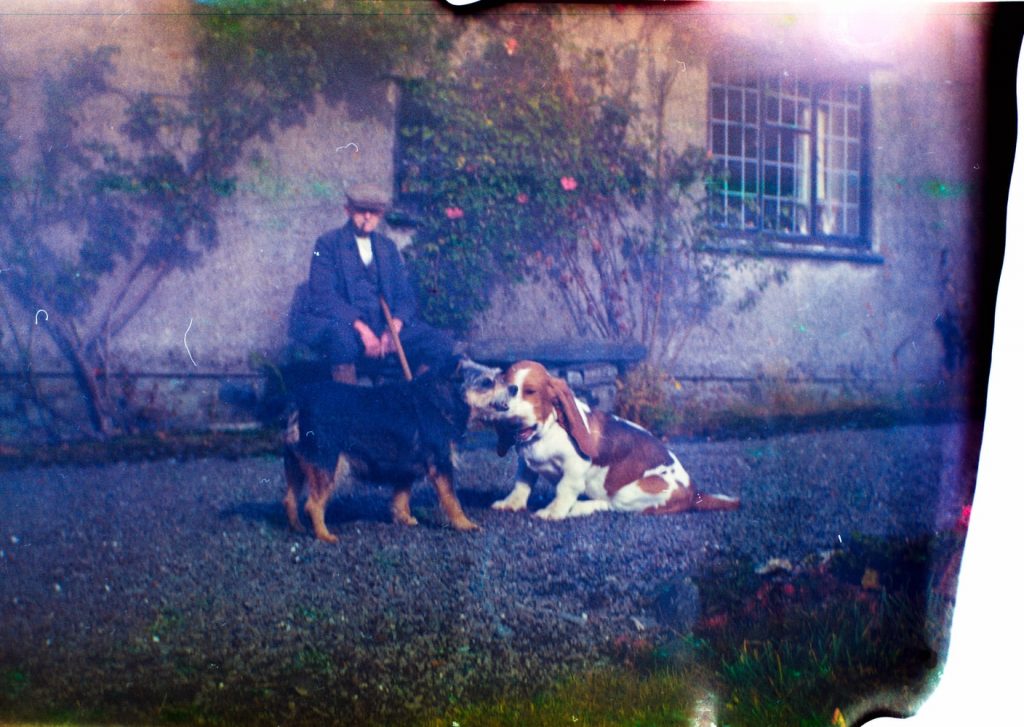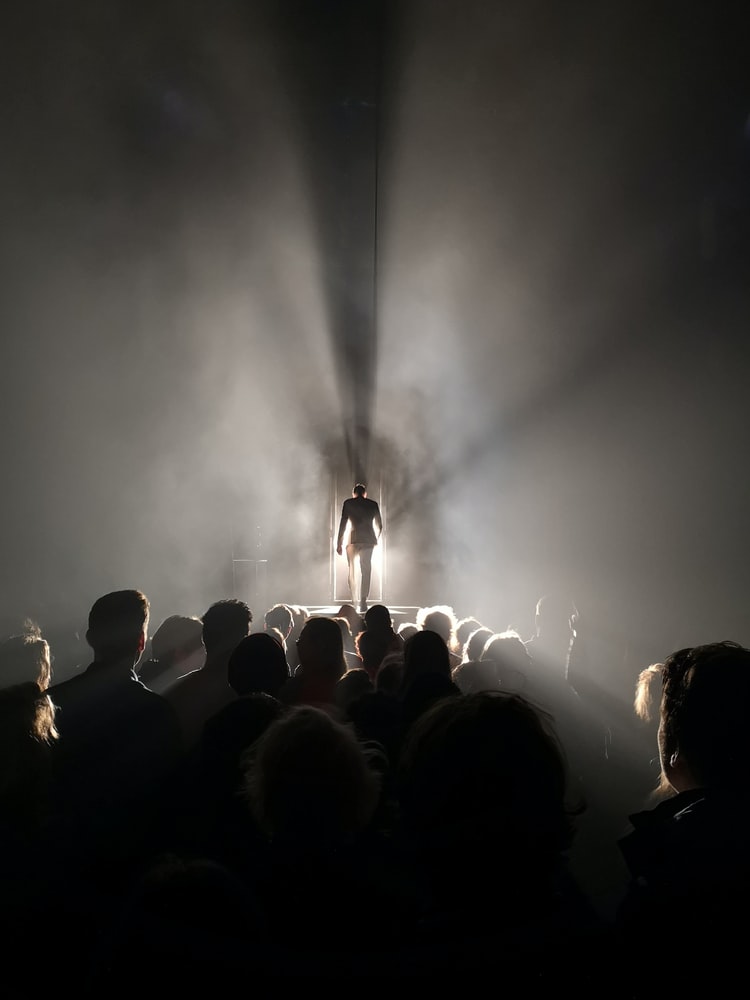
Applause and confetti rained down on the Showman. Thousands and thousands of fans rose to their feet and stood, spellbound, for another five minutes, as he walked to each corner of the stage serving out kisses. Camera phones pop-pop-popped, each reflecting blue light and freezing their owner’s whimsical faces, double chins and yawns. Fathers ushered their families to the aisles with rolled up programmes to beat the traffic, while the majority stayed, half respectfully, half expectantly. Finally, the band riffed and the Showman waved the crowd goodnight.
Backstage, a line formed as the Showman appeared. He pressed hands and smiled for photographs before finally meeting a mother and daughter. His heart sank. The girl, about ten, was shaved bald. Her eyes were defeated and her skin the colour of self-abandonment. The mother was a fusser. No doubt she’d ironed the girl’s clothes, then dragged this poor wretch here, even though the child was clueless about who he was. Now she was prompting her to tell the Showman her story. In detail.
He listened. Patiently, of course. Nodded at the appropriate spots. Caught himself drifting and re-focussed. Was thankful his family wasn’t like theirs.
A female producer with a headset interrupted them and asked to borrow the Showman. The show had to go on.
‘It’s been an honour to meet you,’ the girl said, reaching out to shake the Showman’s hand. Hers was warm but fading.
‘Ask him,’ the mother said, nudging her in the back. ‘What you said to me in the car.’
The Showman looked to his producer and she bent to steer the girl away. ‘Maybe next time.’
‘Ask him,’ the mother insisted.
The girl spoke so softly that she had to repeat herself. ‘What would you say to someone who’s sick like me?’
The Showman glanced down at those surrendered eyes and he felt a flicker of… what?…creeping fear?…mortal insecurity?
‘Believe in yourself, sweetie, and you can overcome anything.’
The producer ushered the pair away, then found the Showman in an editing suite. He was studying the checkerboard of monitors replaying his performance. Cheshire teeth… white. Tonal range… confident. Power dressing… crisp. Make-up?… A tad too orange. ‘Can you lighten my skin tone? We don’t want fifty million viewers thinking I spend all my time in tanning salons. This is one hundred percent Florida!’
The producer cleared her throat. ‘Your ride’s here.’
The Showman glanced at his gold Audemars Piguet timepiece, straightened his silk tie with one quick tug, snapped his bespoke jacket collar then strode in his Louis Vuitton waxed alligators through the rear maze of the stadium.
‘What are the numbers?’ he asked, not breaking stride.
‘Forty.’
He stalled as she handed him the electronic tablet. ‘Four-zero?’
‘Well, thirty-nine with change.’
‘Love offerings?’
‘An extra three.’
‘With change?’
‘No. Flat.’
The Showman’s face glowed as he scrolled through the night’s takings, looking for a mistake – or better yet, an extra zero to carry.
‘Who was on the buckets?’ he asked calmly.
‘Teams D, E and F.’
He slid his hands into his pockets and breathed thinly. ‘Replace them. Put something up on Instagram calling for new volunteers. From now on we always finish with fifty on the books, even if we have to send the buckets around a second time.’
‘Who do you want to –’
‘People with charisma. Women – or even better, young people. Let them be a model to everyone else.’
When the producer raised an eyebrow – just a smidge, but a smidge nonetheless – the Showman softened his tone and shone his immaculate teeth. ‘Look, I know times are tough and everyone is under a lot of pressure, including myself. But we’re doing good work here. World-changing work. You more than most. We just need to pull together and put our best foot forward, and the rewards will come. Don’t you agree?’
Magnanimously, he opened the door, still smiling, then followed her in the loading dock. His face dropped, however, when he saw the black stretch limousine waiting for him.
‘Your driver called in sick,’ the producer said immediately. ‘Appendicitis.’
He held back, then spoke quietly when he pulled her aside. Behind them on the limousine’s hood, sat a rotund Nepalese man in his fifties. He sported a cheap black suit, a bottom-of-the-drawer tie, an orange and pink Dhaka topi on his bald head and a red tilaka between his thick eyebrows. ‘Find another driver with a different car. I can’t go to the airport in that.’
‘We tried. Twice. We even offered to double the fare. But there’re no cars available. All that’s left are taxis…’
The limousine was a peacock on roller skates. The interior discoed with red, blue and green party lights – the kind that turned drunk, snorting passengers into blinking Andy Warhol portraits. Even the number plate danced with small globes, which, mercifully, was simply 2CO R11 and not something horrid like or WATZ UP, GET SUM or I GOTA P. The music system (which he’d asked to turn down) quaked even the surrounding cars, and the air conditioning (which he’d asked to turn up) smelt of cloves and citrus. Factory-made citrus. Worse, the backseats were white leather with a heavy red trim but shaped like the famous giant lips emblem of the Rolling Stones. Want to be swallowed up by Mick Jagger? No thanks.
The Showman had instead chosen the front seat, though now it only added to his distress. Strung along the dashboard were dozens of miniature toys: grinning pigs, pugs, kittens, monkeys, boys, girls, unicorns, pandas, hedgehogs and those ghastly Funko Pops. Most were bobbleheads, and as one, they nodded smugly at the Showman: ‘We know what you’re thinking. Cheerful, eh?’ The only ‘normal’ thing he recognised was the central idol: a statue of the Hindu god Shiva.
‘Yes, yes, yes,’ the driver said with a thick accent into his Bluetooth earpiece. On the other end, a woman spoke in a foreign language, his mobile phone listing her as SHE 01. ‘I’ve got the VIP at the moment. The five other passengers can wait.’
He cancelled the call and eased the limousine to a stop at a red light.
‘You spoke very impressive tonight, sir,’ the driver said.
‘Just drive, please,’ the Showman said.
‘I saw the last twenty minute myself. Many people walked away happy.’
The Showman reached for his mobile but the battery signal flashed red.
‘A man like you must be happy all the time,’ the driver added.
‘Not tonight,’ the Showman said, pocketing his phone.
‘You’re a very popular man, am I correct? I’ve seen you on television. Even back home in Kathmandu, you’re on TV.’
‘I hope so.’
‘Whenever I change the channels, I check up on you. Big stadiums. Big crowds. Big rock bands. Lots of people singing. Happy people. I thought: this man brings lots of joy to the world. Must meet him one day. And here you are!’
‘Look, how long is it to the airport? I really need to – ’
‘Twenty minutes. Thirty max. Your jet has filed a new flight plan. Your producer has everything under control. You’re in safe hands with me.’
The light turned green and the limousine powered forward. There was an awkward pause before the silence weighed too much on the driver.
‘So you’re a priest, sir?’
‘A pastor,’ the Showman said.
‘Are they not the same?’
‘A priest dresses in robes and carries out rites. A pastor is…well, he pastors people.’
‘Sir, my apologies. English is only my third language. What does this word mean? Pastors?’
‘It means you care for others. You counsel them and lead them.’
‘Lead them where?’
‘To God.’
‘Oh! Like Hindu priests. They help people find gods too –’
‘No, to God. The one God.’
‘But they believe in Him too.’
‘I don’t think so,’ the Showman said.
‘Yes, yes, they do. Your God is one of the many gods we Hindus believe in. Look!’
The driver singlehandedly dropped open the heavy glove box to reveal dozens of statues of Brahma, Vishnu, Lakshmi, Buddha, Mary, numerous saints, a ceramic beckoning cat and even Thor. Not some metal Norse representation, but the Marvel action figure.
‘I swap them every few hours,’ the driver said, replacing Shiva on the dashboard with the archangel Raphael. ‘When I need patience, I put Buddha up here. When I need protection, I go with a saint. When I need better fares, I put them all up here!’
‘You can’t do that. That’s – That’s blasphemous!’
‘But very, very profitable!’ the driver laughed, slapping the glove box closed.
The limousine continued through the streets, ghosting large crowds of revellers in its headlights. The caller, SHE 01, rang back. The driver’s conversation was curt. ‘We’re on our way, okay? Tell them it’s not the end of the world.’ He chuckled, ending the call.
‘Sir, you are a man of great wealth, no?’
The Showman sighed. Save me, he thought. ‘I get by.’
‘I heard you speaking to that crowd tonight. You said everyone can get happy. How can I get happy?’
‘You won’t understand.’
‘What wouldn’t I understand, sir?’
‘It’s complicated.’
‘Was it complicated for those people in the stadium tonight?’
The Showman burned. He breathed out then remembered the mantra from his own bestseller: Reward others and you’ll be rewarded.
‘Okay, okay. I’d prefer you come to my church. But it’s a simple secret that’ll change your life.’
‘Why, thank you, sir. Very grateful.’
‘I always encourage people to wake up each day, and to do their best. God is always watching. And when God’s always watching, He’s always expecting. So when you do your part, God will do his part. You following me so far?’
‘Very much, sir.’
‘The problem is, most of us wake up every day thinking we’re not worthy of God’s blessing. We let our emotions tell us we’re not good enough. So we become unhappy. But we are good enough. We’re good people inside. And so we need to live our lives like we’re totally triumphant. God told us to go out and live good lives – and we can only do that if we’re triumphant over our fears and worries, anxiety and pain, poverty and money. He created us to be prosperous, not paupers.’
‘I don’t want to be a pauper, sir.’
‘None of us do. That’s why if we do something good for God, He’ll give it back to us in spades.’
‘Like money?’
‘Money, good health, relationships…you name it. He’ll supply it. He wants you to live in prosperity now.’
‘But how do I do that?’
‘Get a vision for it.’
‘A vision? Like seeing an angel?’
The Showman chuckled. ‘No, friend. Imagine it. Think about what you really want and focus on it. Do everything in your power to make it become real. But most importantly, be generous in your giving.’
‘Giving?’
‘To ministries like mine. God rewards those who reward others.’
The driver changed lanes. ‘So, what you’re saying is: if I want a boat, I should focus on it in my mind, and then give money to you –’
‘– for my ministry to others –’
‘– and then God will reward me with the boat?’
‘Exactly! God wants you to be happy because you are His treasure!’
Expectantly, the Showman glanced at the driver but the man looked perplexed. ‘Sir, forgive me, maybe my English is bad. I’ve read the Bible many times – many times! – and can you tell me where I can find that?’
‘Well…it’s everywhere. I’ve been preaching this for years.’
‘But can you tell me exactly what verses, sir? I’d like to read them myself.’
The Showman reached to Google it, then remembered the flat battery. ‘Trust me. It’s in there,’ he smiled.
‘Forgive me again, sir, but I’m still confused. I’ve read the holy books from all religions, and I’ve written plenty myself, but what about the cross?’
The Showman half-laughed. ‘What do you mean?’
‘Why did Jesus die then? To make us wealthy? He was poor Himself, wasn’t he?’
‘Ah, you see, He died to make us happy –’
‘But if you’re poor, then does that mean God doesn’t love you?’
‘That’s a very simplistic view –’
‘And I heard a passenger say the other day that Jesus died on the cross to save us from the wrath of God because we are sinners. I have to say, sir, I felt anything but happy –’
‘Yes but –’
‘We don’t earn eternal life, but it’s given freely. By Christ alone.’
‘Look!’ the Showman said. ‘The Bible’s a very difficult book to understand. You need years of talking about it to understand it. Just trust yourself and your heart will find the truth.’
The limousine paused at another traffic light and silence ticked between both men. Thankfully, the driver’s mobile phone chirped a third time, flashing with SHE 01 again.
‘He’s ready,’ he answered, his accent gone. ‘No chance of redemption.’
Bewildered, the Showman glanced at the driver, suddenly realising that he was the subject of their conversation. It appeared that the driver had not only grown in confidence, but stature. ‘Who are you?’
‘Why, your biggest fan.’
‘Huh?’
‘The one who’s been with you from the beginning. The one who holds your money bags. The one who whispers in the night: ‘Judas! Judas!’’
‘What?’
‘You know, the Devil in the detail.’
‘Is this a prank? Because if it is –’
‘You don’t know God, friend, but you definitely know me.’
Ignoring the red light, the driver pumped the accelerator and the limousine lurched forward into incoming traffic.
‘Are you crazy?!’ the Showman yelled, grabbing the door. ‘You’re going to kill us both!’
The driver laughed. ‘What? Are you afraid of death?’
Headlights, horns and squealing tyres filled the night air before the limousine exploded in metal and glass. Another car crashed into them and the Showman felt his entire body and soul ricochet.
Moments later, when everything came to a halt, he sat alone in the front seat. Shaken. Bloody. But breathing. The driver had vanished, and later no one admitted actually seeing such a man.
A woman in a tow truck uniform and cap peered down at the Showman through the smashed passenger’s window and whistled. ‘Praise the Lord! You’re alive. It looks like you’ve made a mess of yourself there,’ she said. ‘Hi, by the way. I’m Grace. How can I help you?’

